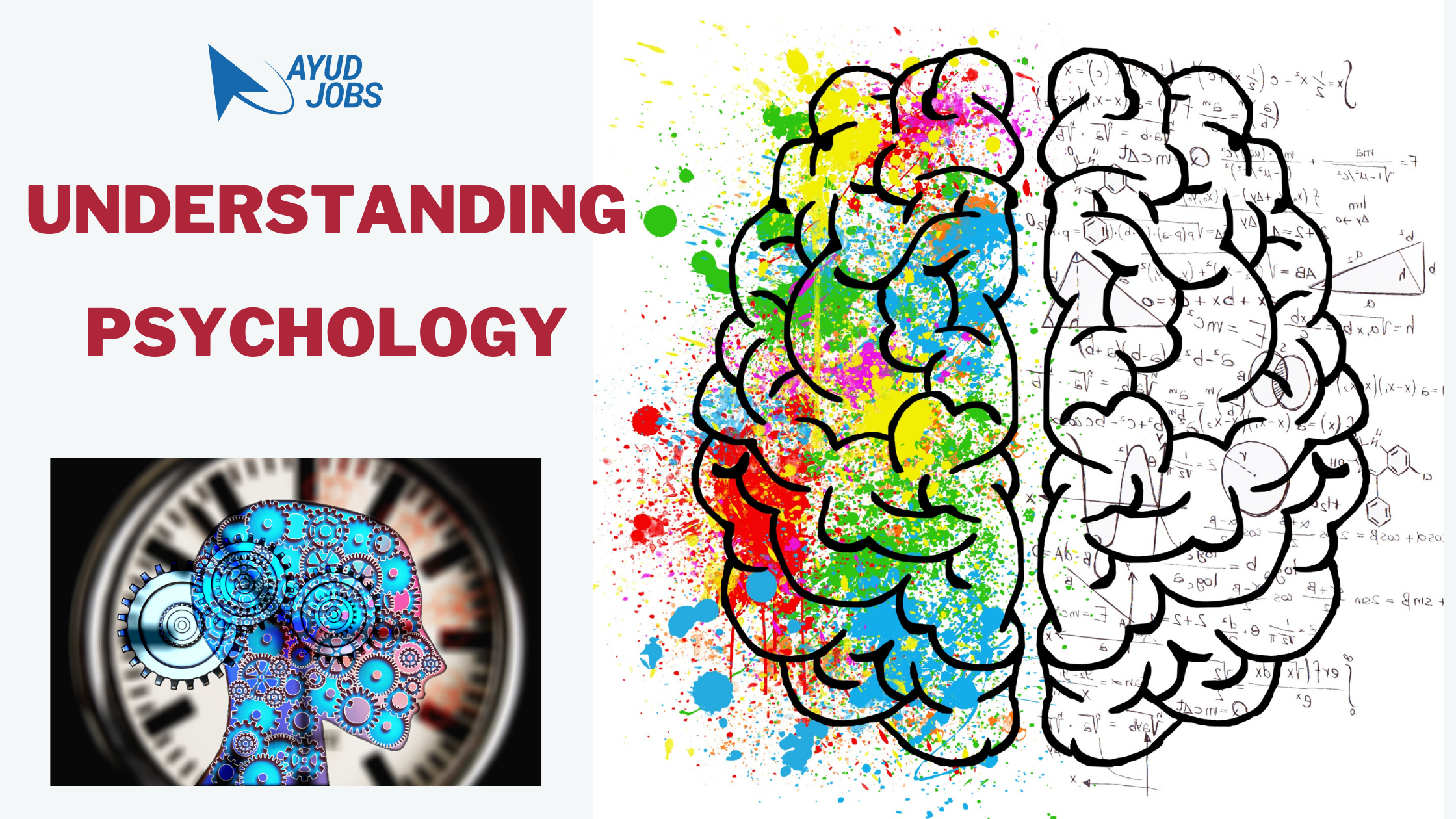Unraveling the Human Mind: Exploring Psychology
Unraveling the Human Mind: Exploring Psychology
Introduction:
Psychology, often referred to as the science of the mind, is a captivating field that delves into the intricacies of human behavior and mental processes. Indeed, whether you possess a curious non-technical perspective or aspire to delve into the realm of psychology, this blog endeavors to illuminate the captivating world of psychology. Its primary objective is to unravel the intricate concepts and fundamental principles of this field in a manner that is easily understandable and accessible to individuals from all walks of life. Unraveling the Human Mind: Exploring Psychology. Join us on this journey as we explore the depths of the human psyche and gain a deeper understanding of ourselves and others.
1. The Foundations of Psychology
A. Exploring the History of Psychology
The Birth of Psychology as a Discipline
The Influential Figures in the Field
B. Theoretical Approaches in Psychology
Behaviorism: Unraveling the Power of Conditioning
Psychoanalysis: Analyzing the Unconscious Mind
Cognitive Psychology: Examining Mental Processes
Humanistic Psychology: Emphasizing Personal Growth
2. Understanding Human Behavior
A. Nature vs. Nurture: The Age-Old Debate
Genetic Factors and Behavioral Traits
The Impact of Environmental Influences
B. The Power of Perception
Sensation vs. Perception: Making Sense of the World
The Role of Attention and Memory in Perception
C. Learning and Conditioning
Classical Conditioning: Pavlov’s Dog Experiment
Operant Conditioning: Rewards and Punishments
3. The Complexities of Emotion and Motivation
A. The Science of Emotion
The Components of Emotion: Physiological and Cognitive Aspects
Theories of Emotion: From James-Lange to the Two-Factor Theory
B. Unraveling Motivation
Intrinsic vs. Extrinsic Motivation
Maslow’s Hierarchy of Needs: The Pursuit of Self-Actualization
4. Mental Processes and Cognitive Abilities
A. Attention and Memory
Selective Attention: Focusing in a World of Distractions
Types of Memory: From Short-Term to Long-Term
B. Problem Solving and Decision Making
Strategies for Effective Problem Solving
Biases and Heuristics: Influences on Decision Making
5. Applications of Psychology
A. Clinical Psychology: Nurturing Mental Health
Common Mental Disorders and Treatment Approaches
The Role of Therapists and Psychologists
B. Social Psychology: Exploring Interactions and Group Dynamics
Understanding Social Influence and Conformity
Stereotypes and Prejudices: Unraveling Social Cognition
Psychology is the scientific study of the mind and behavior. It seeks to understand how people think, feel, and behave, as well as the underlying processes that drive these thoughts and actions. Psychology examines various aspects of human experience, including perception, cognition, emotions, motivation, personality, development, and social interaction.
The field of psychology encompasses a wide range of theories, research methods, and sub-disciplines. Some of the major branches of psychology include:
- Cognitive Psychology: This branch focuses on understanding mental processes such as perception, attention, memory, language, and problem-solving. Cognitive psychologists study how people acquire, process, and use information.
- Developmental Psychology: Developmental psychologists investigate human growth and development across the lifespan, from infancy to old age. They examine physical, cognitive, social, and emotional changes and how these changes impact behavior.
- Social Psychology: Social psychologists explore how individuals’ thoughts, feelings, and behaviors are influenced by the presence or imagined presence of others. They study topics such as attitudes, social perception, conformity, group dynamics, and interpersonal relationships.
- Personality Psychology: Personality psychologists aim to understand individual differences in characteristic patterns of thinking, feeling, and behaving. They investigate traits, motivations, and the various factors that shape an individual’s personality.
- Abnormal Psychology: Abnormal psychology focuses on understanding and treating psychological disorders. It involves the study of the causes, symptoms, diagnosis, and treatment of conditions such as depression, anxiety disorders, schizophrenia, and personality disorders.
- Clinical Psychology: Clinical psychologists assess, diagnose, and treat mental health disorders. They often work with individuals experiencing psychological distress and employ various therapeutic approaches to help improve their well-being.
- Behavioral Psychology: Behavioral psychologists study the relationship between behavior and the environment. They examine how learning, conditioning, and reinforcement shape behavior and develop strategies for behavior modification.
These are just a few examples of the many branches within psychology. Throughout its history, psychology has evolved and incorporated insights from various fields, including biology, neuroscience, sociology, and anthropology, to provide a comprehensive understanding of the human mind and behavior.
Psychologists employ different research methods, including experiments, surveys, observations, and case studies, to gather data and test theories. This empirical approach allows for the systematic investigation of psychological phenomena and the development of evidence-based practices and interventions.
Overall, psychology plays a crucial role in helping us understand ourselves and others, providing insights into human behavior, cognition, and emotion. Its findings have practical applications in areas such as therapy, education, organizational behavior, and improving overall well-being.
Conclusion:
Psychology, an amalgamation of science and art, provides us with invaluable insights into the complexities of human behavior and the workings of the mind. By delving into its various branches and concepts, we can gain a deeper understanding of ourselves and the people around us. Whether you’re interested in unraveling the mysteries of emotion, exploring the depths of cognition, or applying psychological principles to improve mental health, psychology offers a plethora of knowledge and opportunities for growth. Embrace the wonders of psychology and embark on a journey of self-discovery and enlightenment.
Check your knowledge by taking MCQ tests.
MockTest – Explore / Psychology
MockTest – Explore / Psychology 2
The Students Handbook to Building A Successful Career
What is Ayud Jobs?
Ayud Jobs is a one-stop platform for career development. It offers a wide array of services, including creating a career roadmap, building a resume, receiving matching job alerts, and staying updated on job fairs/drives and job openings. Their Blog section provides career-related articles, including job searching and interview strategies.
By registering with Ayud Jobs, you can access all these resources and stay up-to-date with the latest career trends. Their Event feature keeps you informed about education-related events, college and university events, health tips, and more. Additionally, they offer practice MCQs to help you prepare for interviews.
To take advantage of their comprehensive resources and stay informed about the latest career advice and opportunities, register with Ayud Jobs today.
Click here to install Ayud Jobs from Play Store.
#ayudjobs #ayudsoftware #Psychology #MindScience #HumanBehavior #CognitiveProcesses #EmotionalIntelligence #MentalHealth #BehavioralScience #Perception #Motivation #SocialPsychology









